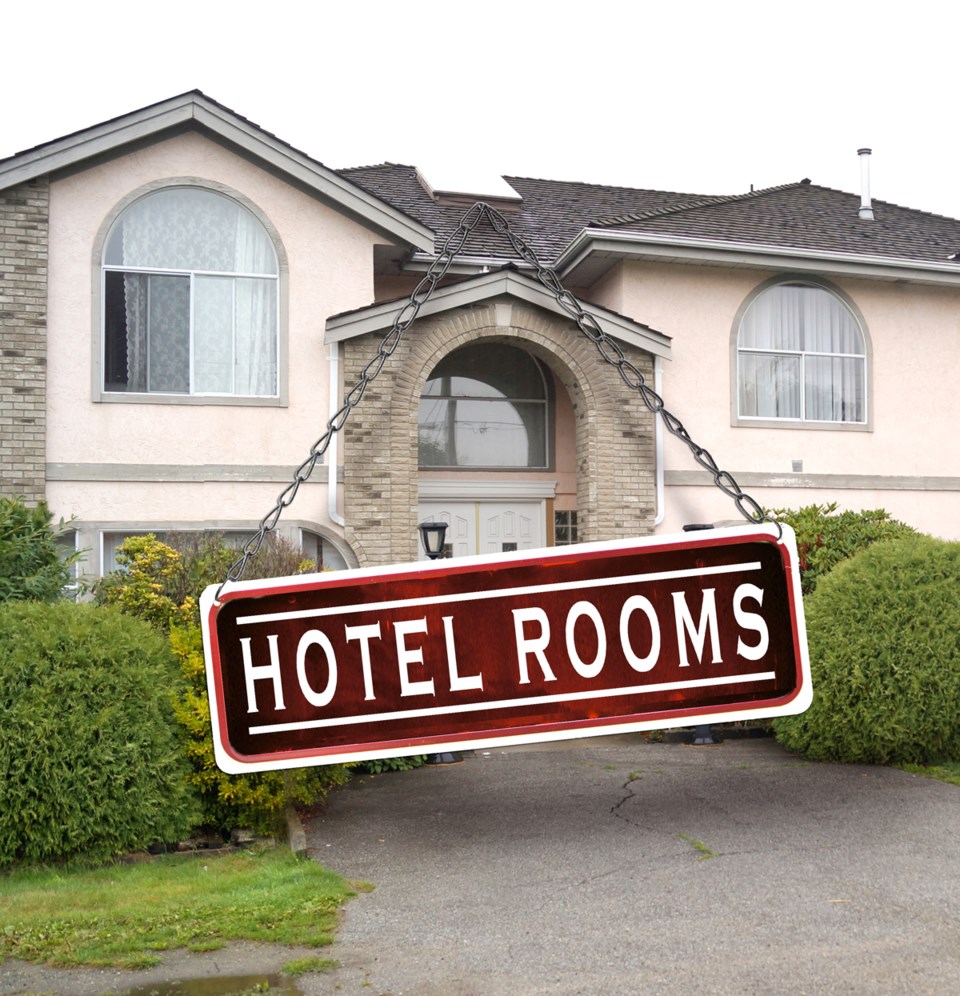After years of precious little movement on the issue of illegal hotels, this past week we’ve seen a flurry of activity.
On Jan. 3, councillors, at a committee meeting, endorsed (6-1) a staff report recommending the city legalize house-hotels. Staff argued that banning them would be too difficult — better to legalize and regulate them.
Residents, at least the ones we heard from, flew into a rage, and just six days later, council did an about-face and ordered staff to draw up bylaws to prohibit house-hotels.
In both cases, the votes were not to “seal the deal,” but to move the reports to public consultation. However, the point of consultation was to determine what bylaws should be enacted to regulate house-hotels, in the first instance, and, now, what bylaws should be enacted to prohibit house-hotels.
Flip-flop? Maybe. I like to think our politicians did what they’re supposed to do — listen and reflect the wishes of the majority.
Regarding the actual decision, many of our letter writers noted that if our city staff can’t enforce the bylaws as they stand and shut down illegal house-hotels, why should we think they can enforce regulation of legal house-hotels.
To that, I’d argue when enough people are already participating in an activity, it’s easier to regulate it than stamp it out completely (see: prohibition, legalization of marijuana). In other words, the city may well be more successful in regulating house-hotels than they have been in closing them down. However, the problem now is, it’s too late.
Had the city dealt with this issue a few years ago, when people first started complaining (and they were complaining) residents may be more amenable to some form of regulation. Certainly, other communities are managing the short-term rental phenomena without sounding the death knell for neighbourhoods.
However, in Richmond the situation has gotten so out of control, people have lost faith in the city’s ability, or willingness, to fix it.
I appreciate there is due process. But people believe what they see, and what they see are cars coming and going at all hours, garbage strewn about and an erosion of their neighbourhoods. Moreover, what they don’t see is a single fine issued or hotel closed.
When it comes to bylaw enforcement, residents are understandably wary; consider mega homes, despite bylaws limiting house sizes; think Harvest Power stench, despite odour regulations; ponder treacherous, icy sidewalks, despite snow/ice clearing policies.
I don’t particularly like seeing people penalized, but we all know how well a hockey game goes when the refs appear blind — things get ugly. So, while it will be interesting to see what city staff come up with for a house-hotel bylaw, we ought to also ask, “where’s the enforcement?”



